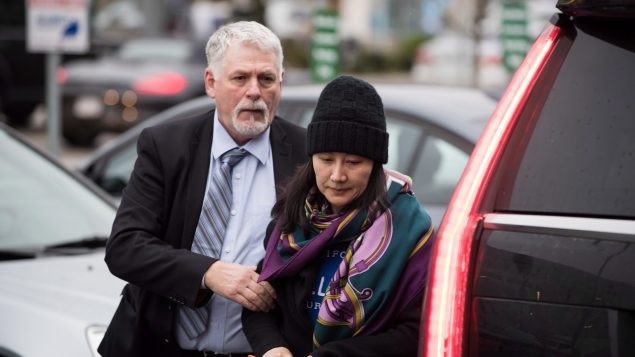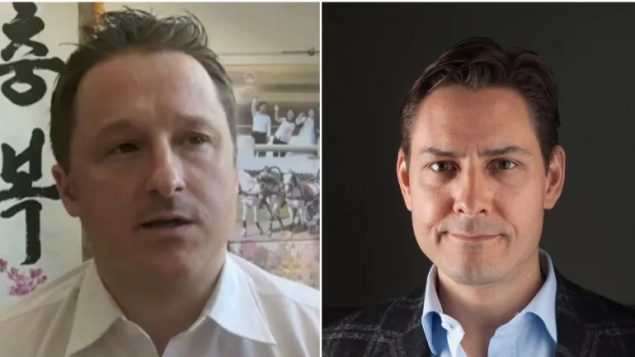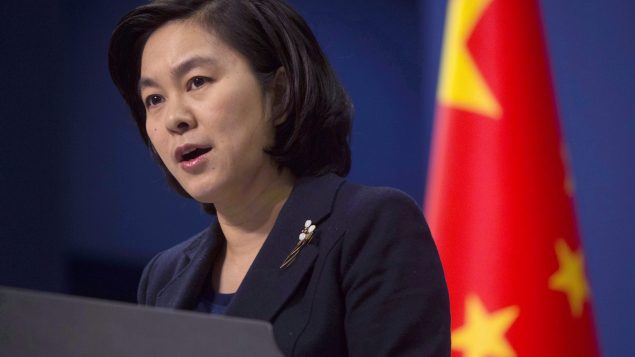A Chinese official says the U.S. and Canada are abusing their bilateral extradition treaty following media reports that U.S. officials are expected to proceed with a formal extradition request for a top Chinese telecom executive arrested in Canada based on an American arrest warrant.
Meng Wanzhou, chief financial officer of Huawei, who was arrested in Vancouver in December while changing planes, is wanted in the U.S. on charges of violating sanctions against Iran.
Meng, 46, who is also the daughter of Huawei founder Ren Zhengfei, was released on bail by a Canadian court to await the results of extradition proceedings.
Meng’s case has drawn international attention and sparked diplomatic tensions between Canada and China.
On Monday, the Globe and Mail published a report saying officials in the U.S. will soon proceed with a formal extradition request for Meng.
According to the bilateral extradition treaty between the two North American neighbours, U.S. officials have until Jan. 30 to file the formal request.

Huawei chief financial officer Meng Wanzhou, right, is escorted by a member of her private security detail while arriving at a parole office, in Vancouver, on December 12. (Darryl Dyck/THE CANADIAN PRESS)
Speaking to reporters during a regular briefing in Beijing on Tuesday, Chinese Foreign Ministry spokesperson Hua Chunying said that both countries had abused the extradition agreement in Meng’s case.
“Anyone with normal judgement can see that the Canadian side has made a serious mistake on this issue from the very beginning,” Hua said.
Prime Minister Justin Trudeau and Foreign Affairs Minister Chrystia Freeland have said on numerous occasions that there has been no political interference in the Meng case and that Canada was bound by its extradition treaty with the U.S. to arrest her.
Meng’s case is “obviously not an ordinary judicial case,” Hua said.
“Canada and the U.S. arbitrarily abusing their bilateral extradition treaty severely infringes upon the security and legitimate rights and interests of Chinese citizens,” Hua said. “We urge the Canadian side to immediately release Ms. Meng Wanzhou and earnestly ensure her legal and legitimate rights and interests.”
China also “strongly urges” the U.S. to “immediately correct its mistake” and withdraw its arrest warrant for Meng and refrain from making a formal extradition request to the Canadian side, she added.
Asked if China would retaliate against the United States if Meng is extradited, Hua said, “China will, of course, respond to U.S. actions.” She did not elaborate.

Chinese officials say Canadians Michael Kovrig, right, and Michael Spavor were arrested for undermining Chinese ‘national security,’ while Huawei executive Meng Wanzhou was arrested ‘illegally’ in Canada upon U.S. request (Associated Press/ International Crisis Group/Canadian Press)
Days after Meng’s arrest, Chinese authorities detained Michael Kovrig, who took a leave of absence from Global Affairs Canada to work as the North East Asia analyst for the non-governmental think tank International Crisis Group, and Michael Spavor, a China-based Canadian entrepreneur.
Then on Jan. 14, a Chinese court sentenced a Canadian man to death in a sudden retrial of a drug-smuggling case. Robert Lloyd Schellenberg, 36, had appealed his original 15-year sentence.
Schellenberg death sentence was seen by many in Canada as another attempt by Beijing to apply pressure on Ottawa following Meng’s arrest.







For reasons beyond our control, and for an undetermined period of time, our comment section is now closed. However, our social networks remain open to your contributions.